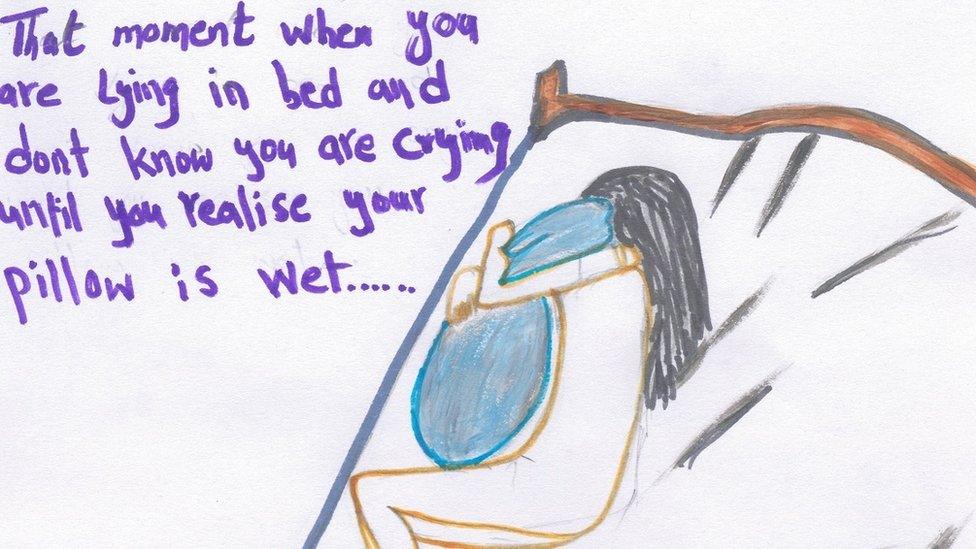Homeless deaths rise driven by 'drug poisoning'
- Published
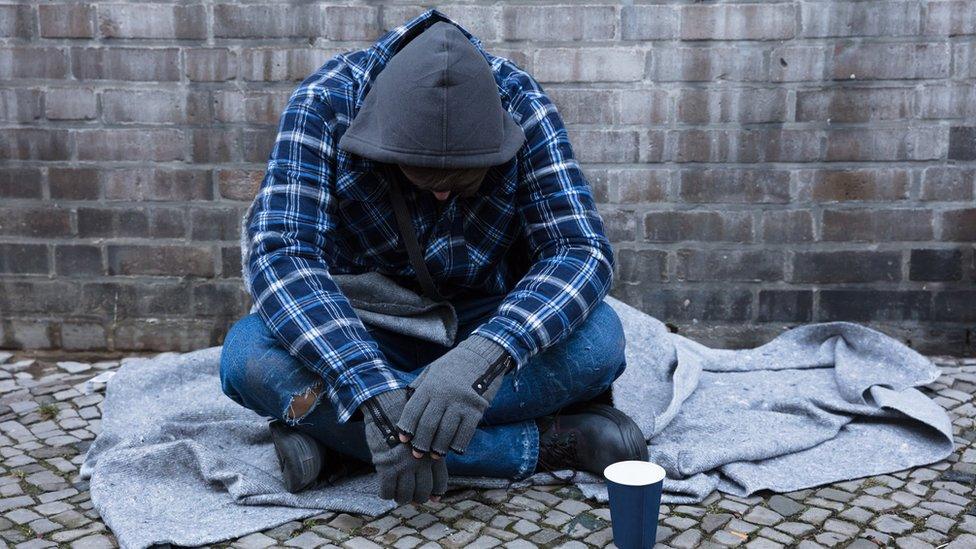
Deaths of homeless people have risen by a fifth in a year, the ONS has said.
Drug poisoning has contributed to the biggest rise in deaths of homeless people in England and Wales since records began.
About 726 homeless people died in 2018, a rise of 22% in one year, the Office for National Statistics (ONS) said.
Deaths from drugs have more than doubled in the six years the ONS has been recording the data.
Housing minister Luke Hall said the figure was "heartbreaking" and funding to help rough sleepers was increasing.
Shadow housing secretary John Healey said the number of deaths "shames us all in a nation as decent and well-off as Britain today".
Ben Humberstone from the ONS said the rise was mainly due to an increase in "drug poisoning".
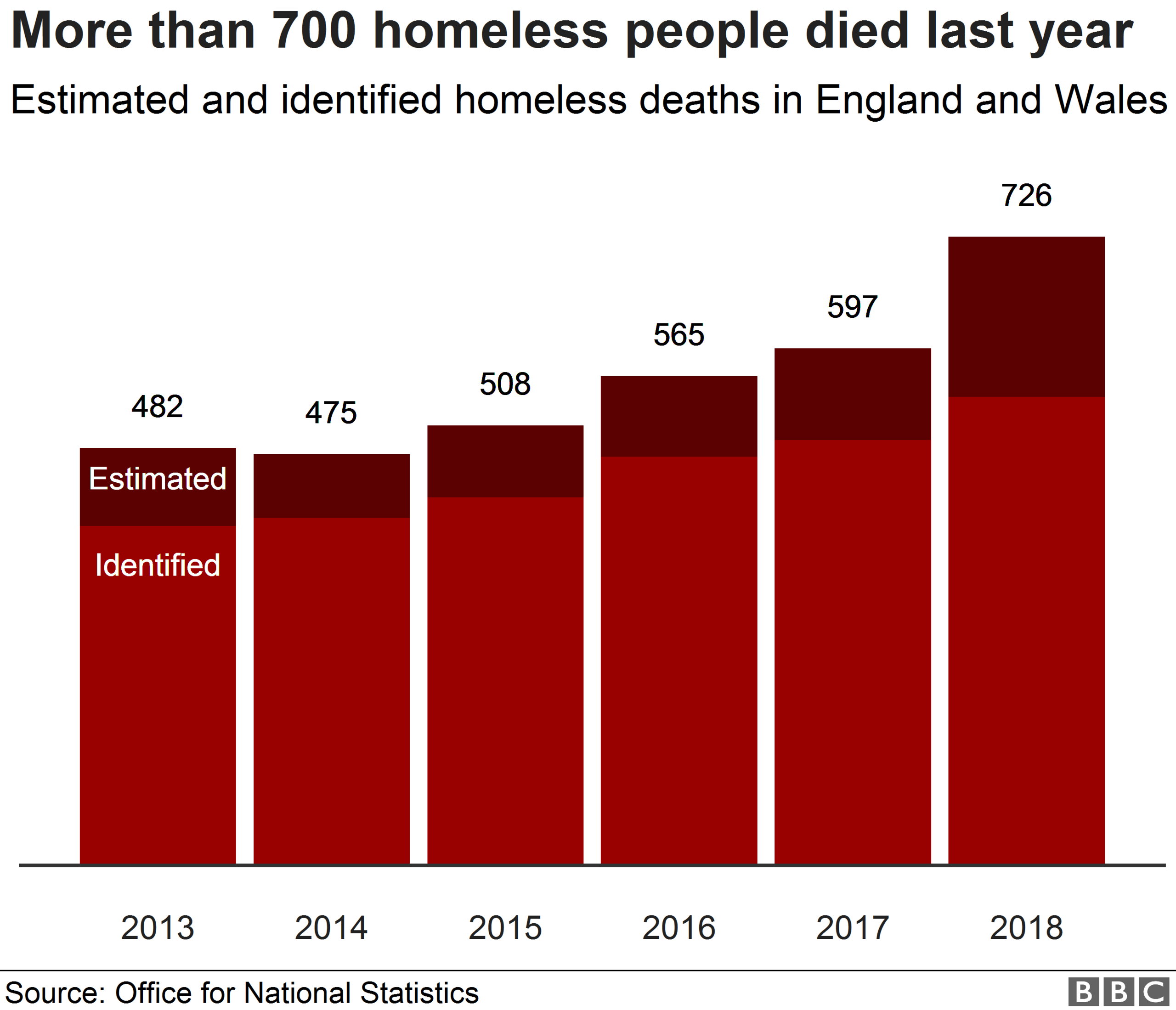

'I've lost someone that I love'
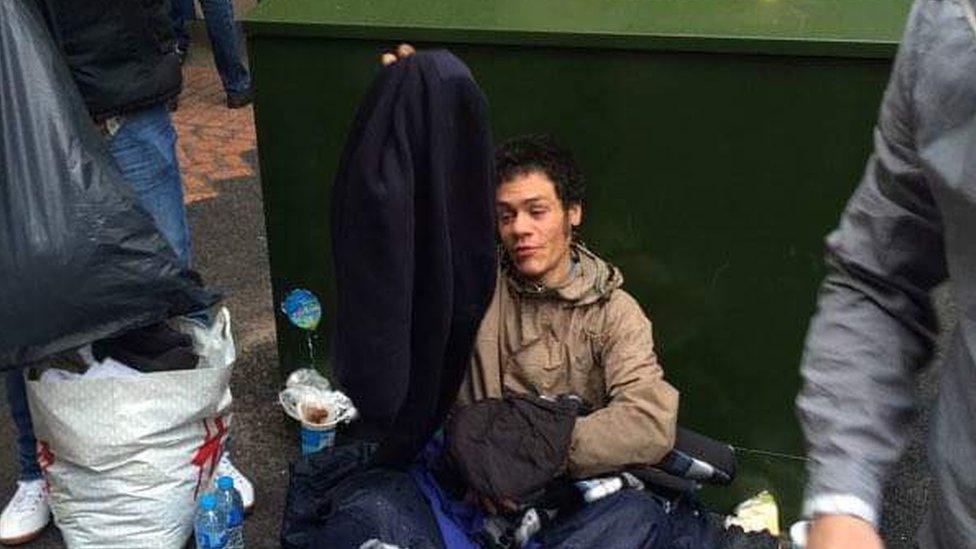
Kane Walker was found by paramedics in Pershore Street, Birmingham
Alexandra Davis lost her brother Kane Walker, who died after taking a fatal dose of heroin in Birmingham city centre in February.
She said it was important for people to know how difficult homeless people found it to get help.
At Mr Walker's inquest senior coroner for Birmingham and Solihull Louise Hunt said help was offered to him, but he had not fully engaged with services.
"I've lost someone that I love," Ms Davis said. "I think the positive thing about talking out about it is to be able to help other people that are on the street struggling with drug addiction.
"There just wasn't enough help out there for him."
'Numbs the pain'
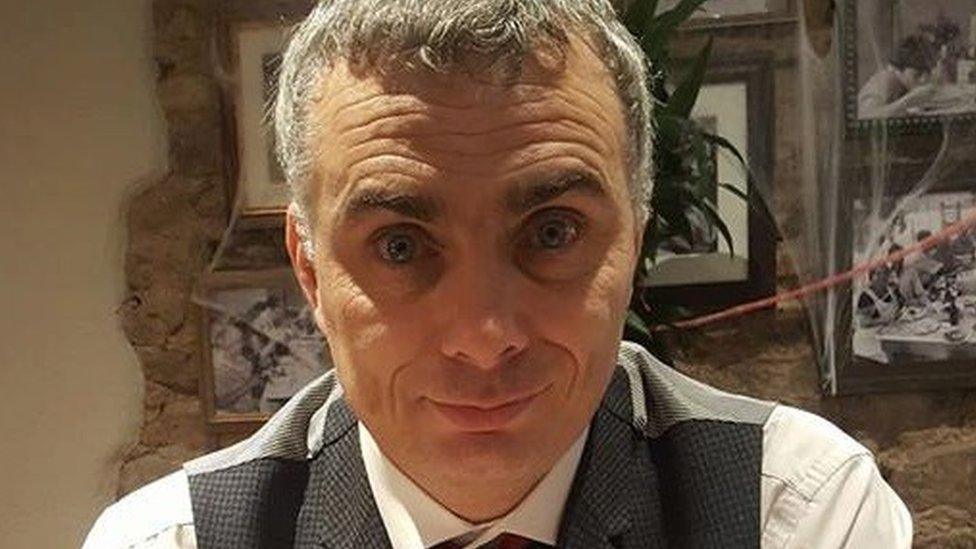
Kenneth Lowry has been volunteering in Birmingham for three years feeding the homeless
Kenneth Lowry, 46, volunteers with the Birmingham section of the charity CERT UK that serves hot meals to people on the streets.
He said the group often feeds more than 140 people and he had served Kane Walker in the past.
Mr Lowry said many of the homeless people he had spoken to had "hit rock bottom" after falling out with their families.
"The drugs and alcohol numb the pain of the reasons why they are homeless," he said.
Mr Lowry, who spent a year homeless himself after leaving the army in 2001, said currently there "wasn't enough support" available from local authorities and the government.
"They need accommodation," he said, adding: "They're just left on the street to fend for themselves."
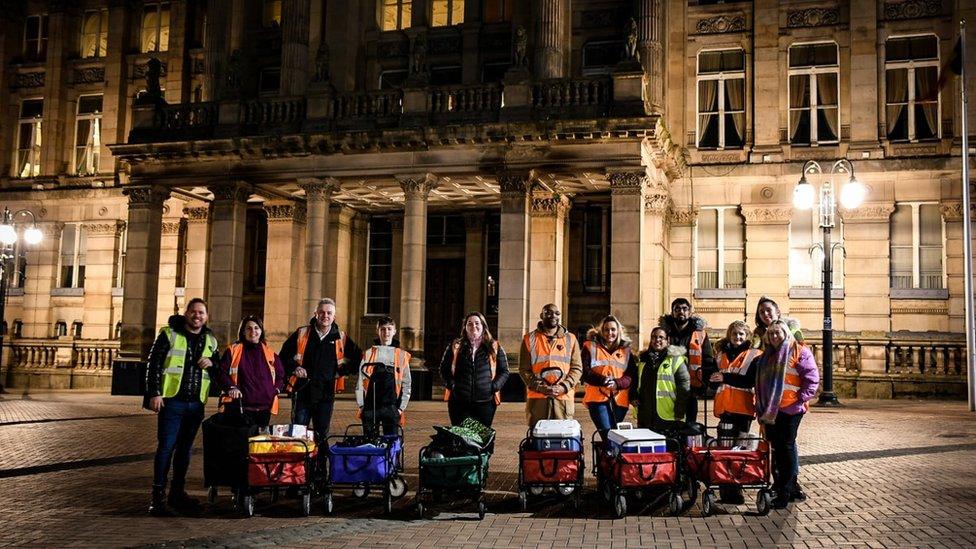
Peter Caine (far left) and his group provide supplies for the homeless around Birmingham
Charity volunteer Peter Caine said people on the streets were using drugs to get to sleep.
"When you're cold you can't sleep, your body won't let you," said the 33-year-old, who works with Helping the Homeless in Birmingham.
"Then somebody says to you 'use this, it'll help you sleep' and they sleep like a baby. It's a very hard thing to resist without the right support."
Mr Caine said with "fewer police on the streets" drugs were "easier to get hold of".

Deaths related to drug poisoning among the homeless increased 55% between 2017 and 2018, compared to a rise of 16% among the population as a whole, the ONS said.
Of the 294 estimated deaths from drug poisoning in 2018, the substance detected the most was heroin or morphine, which was identified in 99 cases. This was followed by alcohol, which appeared in 75 cases.
The number of deaths where heroin or morphine was detected in 2018 was more than double the number recorded in 2013, while cases where cocaine was identified tripled over the same period.
The government said it had brought forward "new training" this year for frontline staff in the dangerous effects of new psychoactive substances, such as spice, to help "engage with and support rough sleepers" under the influence.

The statistics include people sleeping rough or using emergency accommodation such as homeless shelters and hostels at or around the time of death.
Government figures suggest there were 4,677 people sleeping rough in England in autumn 2018. This was a slight fall on the year before, down 74, but still more than double the number recorded in 2010.
The figures are collected by local councils, some of which count people they see sleeping rough on a given night and others provide estimates.
In Wales local authorities counted 158 people sleeping rough in 2018, down 16% on 2017.
Street counts and estimates in Northern Ireland found 38 rough sleepers in November 2018, external.
The Scottish Government reported 2,876 people who applied for help with homelessness had slept rough at least once during the three months their application in 2018-19.
When you can't see inside a tent, it makes counting homeless numbers that bit harder, Michael Buchanan explains

You may also be interested in:

'Unacceptable and avoidable'
Dr Peter English, from the British Medical Association (BMA), said: "For too long, the needs of this population have gone shamefully unaddressed.
"As well as seeing a radical overhaul of social housing provision, we need to ensure that our health services are adequately resourced to provide innovative and integrated models of care for the homeless population."
He described the deaths as "unacceptable and completely avoidable".
Polly Neate, from the housing charity Shelter, called for all political parties to commit to building the social homes we need to form the bedrock of a more humane housing system."
A spokesman for the Ministry of Housing, Communities and Local Government (MHCLG) said the figures were a "sombre reminder" there was "still much more to do to tackle homelessness and end rough sleeping for good".
"Drugs can devastate lives, ruin families and damage communities, which is why we are undertaking a comprehensive review which will help protect the most vulnerable - including homeless individuals - from the harms that drugs cause and give them a chance to recover and turn their lives around," he said.
"We are also investing £1.2bn to tackle all forms of homelessness and have made the most ambitious change to legislation in a decade," the spokesman added.
- Published26 September 2019
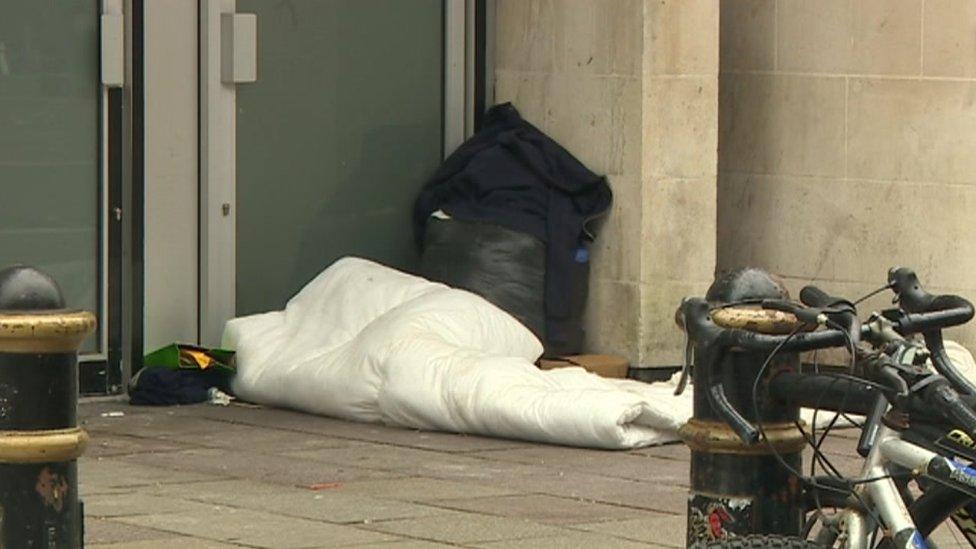
- Published18 September 2019
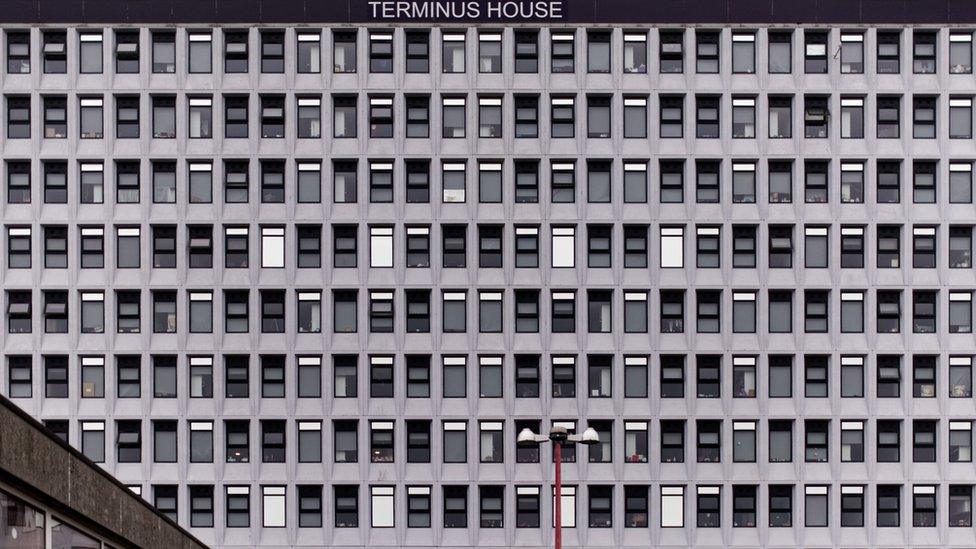
- Published12 September 2019
